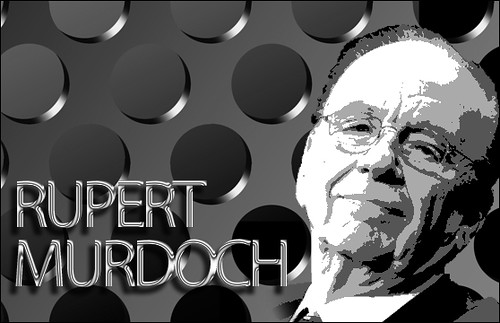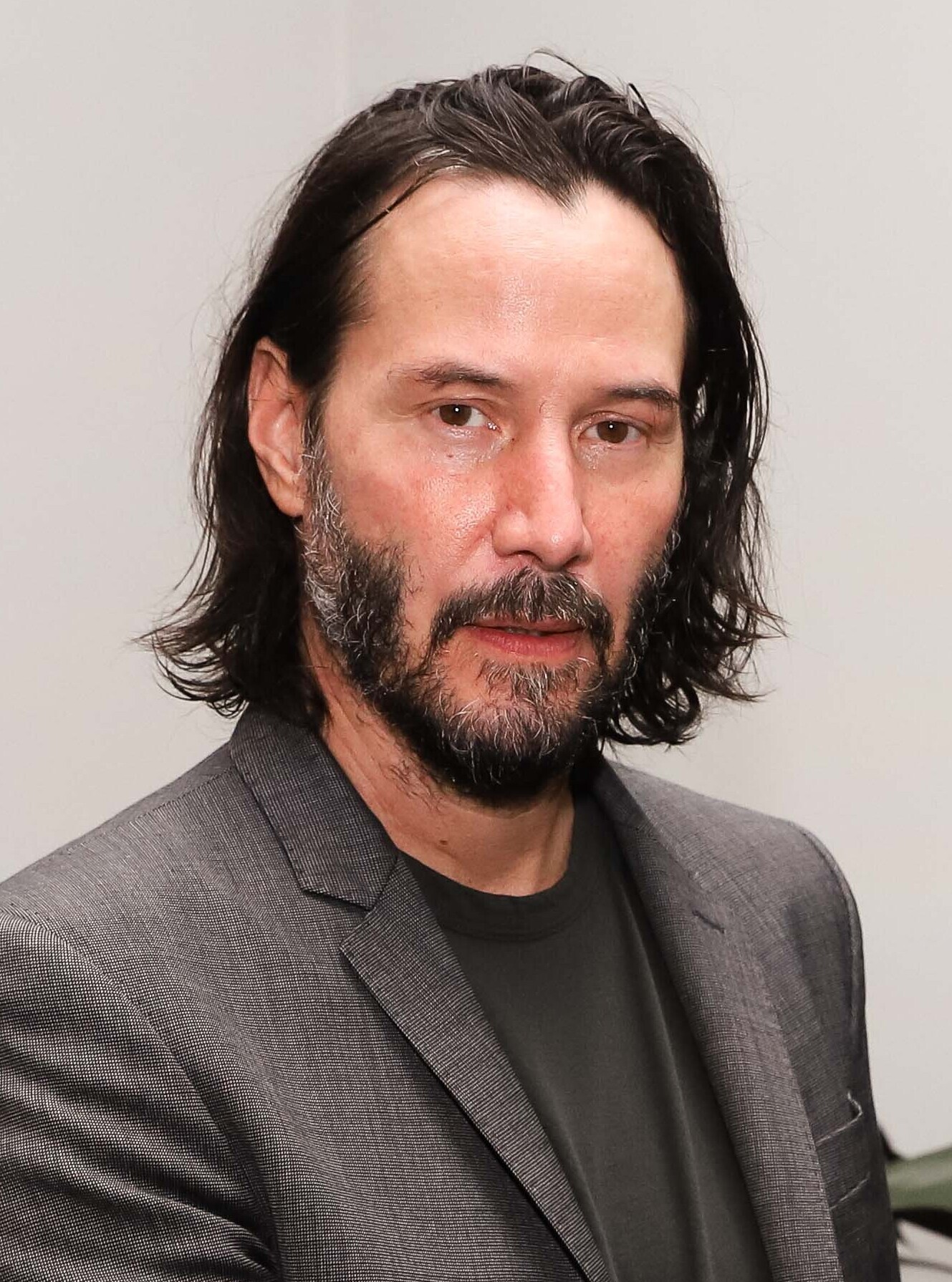
In the glittering world of Hollywood, where lavish displays of wealth often grab headlines, certain figures stand out for their notably understated approaches to success and personal finance. One such individual is the Canadian actor and musician, Keanu Charles Reeves, a name synonymous with blockbusters like “The Matrix” and “John Wick,” as well as an amiable public image and known philanthropic efforts. While his immense success and status as one of the highest-paid actors are well-documented, a deeper look into his career choices and personal ventures reveals a consistent pattern that speaks to a financial ethos far removed from typical multimillionaire extravagance.
This isn’t about pinpointing traditional frugal habits like penny-pinching; rather, it’s an exploration of how Reeves, throughout his four-decade-spanning career, has made decisions that consistently prioritize values beyond immediate financial maximization or opulent self-indulgence. From taking significant pay cuts to ensure dream casts, to passionately pursuing artistic endeavors outside the mainstream, and channeling resources into meaningful projects, his path offers surprising insights into how one of the world’s most influential people navigates wealth. His journey provides a unique lens through which to examine a life lived with purpose, demonstrating that true richness extends beyond mere monetary accumulation.
Join us as we uncover the lesser-known dimensions of Keanu Reeves’ relationship with wealth and success. We’ll explore how his choices in film, music, and entrepreneurial ventures, alongside his personal values, paint a picture of an individual whose approach—though not always conventionally frugal—consistently reflects a grounded, unpretentious, and often generous disposition. This quiet consistency redefines what it means to be a multimillionaire in the 21st century, offering a refreshing perspective on celebrity and finance.
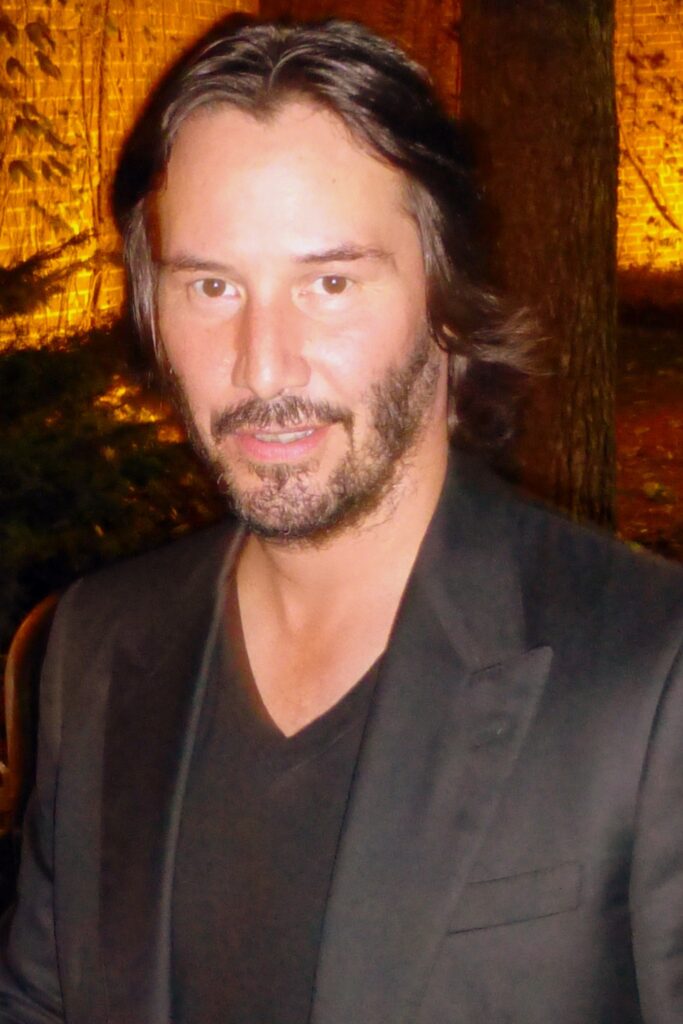
1. **Prioritizing Artistic Integrity Over Blockbuster Paydays**Keanu Reeves’ journey through Hollywood is marked by a distinctive trait: a willingness to forgo substantial financial gains when artistic integrity or collaborative spirit called for it. This is a striking characteristic in an industry often driven by bottom-line considerations, where maximizing personal wealth is often the explicit goal. One notable instance involved the 1997 supernatural horror film “The Devil’s Advocate,” where Reeves “agreed to a pay cut of several million dollars so that the film studio could afford to hire Pacino.” This was not a frugal act to save his own money, but a strategic financial concession designed to elevate the overall quality of the project by enabling the participation of a legendary co-star, demonstrating a clear prioritization of the film’s artistic ensemble over his personal maximum earnings.
A similar decision underscored his involvement in the 2000 sports comedy, “The Replacements.” Following the massive success of “The Matrix” in 1999, Reeves was at a career high, positioning him to command top dollar for his next projects. Yet, despite this leverage, he “agreed to a pay cut to enable Gene Hackman to co-star in the film.” These choices collectively paint a picture of an actor deeply invested in the caliber of his collaborations and the artistic outcome, even if it meant personally earning less. Such a practice, while not a “frugal habit” in the traditional sense of personal expense saving, reflects a consistent pattern of not pursuing every last dollar, thereby aligning with a non-materialistic approach to professional compensation.
Furthermore, Reeves notably “turned down an offer to star in the 1997 film Speed 2: Cruise Control, despite being offered a salary of $12 million.” This decision, while reportedly causing “20th Century Fox to sever ties with him for a decade,” illustrates a powerful stance against purely commercial motivations. Rejecting such a colossal sum, especially at a time when he had experienced “several box-office disappointments,” further reinforces his propensity to prioritize factors beyond immediate financial reward. Whether it was the quality of the script, creative differences, or other undisclosed reasons, the act of walking away from $12 million speaks volumes about his values and his unique financial discipline.
These instances collectively showcase a pattern of financial decision-making that is more aligned with artistic and collaborative values than with raw personal wealth accumulation. In a world where celebrity often chases the highest bid, Reeves’ choices to consciously reduce his own earnings or reject massive paychecks for the sake of a project or a principle delineate a unique habit of valuing substance over sheer monetary gain. This distinctive financial approach, where the art takes precedence over the balance sheet, stands as a quiet testament to his broader, unpretentious ethos. It is a powerful statement from a multimillionaire who could easily demand the maximum, but often chooses not to.
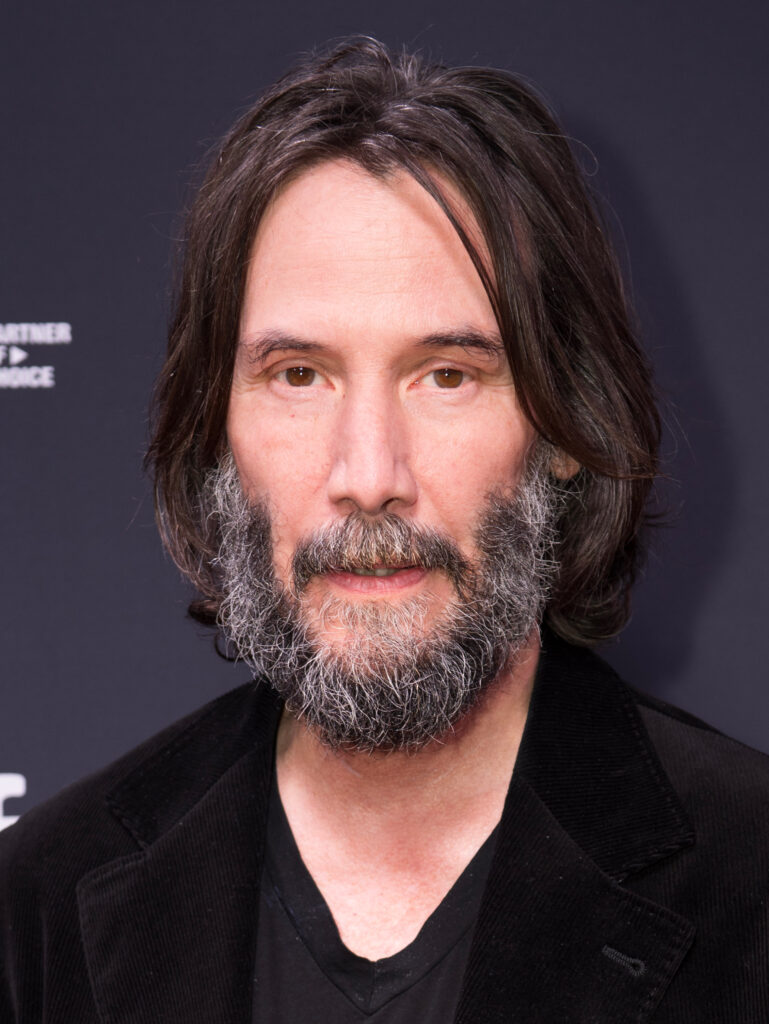
2. **The Spirit of Philanthropy: Giving Back Beyond Personal Gain**Beyond his cinematic endeavors and career choices, Keanu Reeves is also widely recognized for “his philanthropic efforts.” While the provided context does not delve into the specifics of these endeavors, the very mention of his philanthropic spirit as a defining aspect of his public image is highly significant. This indicates a consistent habit of sharing his wealth and contributing to causes beyond his immediate personal needs, a characteristic that subtly underpins a less self-serving, and thus, less opulent approach to his substantial financial success.
Philanthropy, by its nature, involves the voluntary act of giving resources, often monetary, for public good. For a multimillionaire, engaging in “philanthropic efforts” is a deliberate choice to redistribute wealth rather than to accumulate it solely for personal consumption or luxurious living. This practice, therefore, aligns with a broader philosophy that prioritizes collective well-being or societal benefit, implicitly moving away from a purely acquisitive mindset often associated with vast fortunes. It demonstrates a conscious decision to utilize financial success as a means to contribute positively to the world, rather than solely for personal indulgence.
The fact that his “philanthropic efforts” are highlighted as a key component of his “amiable public image” further suggests that these are not isolated incidents but rather an ongoing commitment. This commitment to giving back implies a perspective on wealth that views it as a resource to be managed responsibly, not just for personal enjoyment but for a larger purpose. This kind of financial habit, though distinct from personal frugality in direct spending, is profoundly “frugal” in the sense that it prevents the unchecked personal accumulation and potentially extravagant use of all his earnings, shaping his image as a grounded and conscientious individual.
Read more about: Beyond the Hammer: An Insider’s Look at Chris Hemsworth’s Journey to Global Stardom
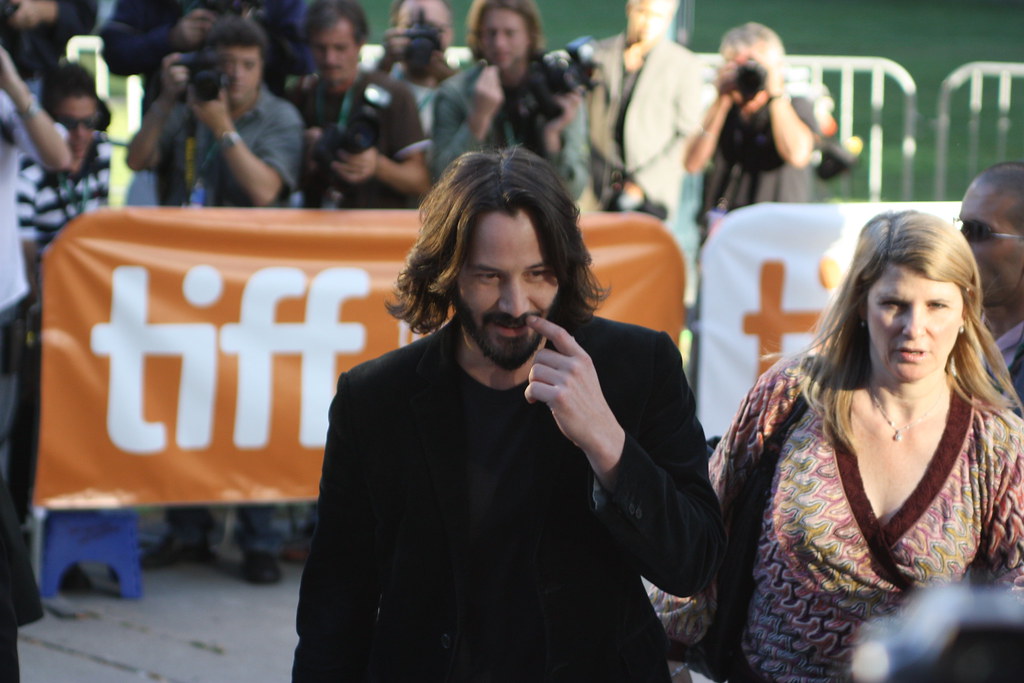
3. **Investing in Passion: The Creative Ventures of BRZRKR and ARCH Motorcycle**Keanu Reeves’ approach to investment and entrepreneurial endeavors further reveals a distinct habit of channeling resources into projects driven by personal passion and creative vision, rather than purely high-yield financial speculation. This selective allocation of time, energy, and capital into ventures like the “BRZRKR franchise” and “ARCH Motorcycle” speaks volumes about his priorities, distinguishing him from individuals who might solely pursue luxury assets or conventional wealth management strategies. It represents a different kind of “frugality” – a focused deployment of resources towards meaningful, long-term endeavors.
As the “co-writer and creator of the BRZRKR franchise,” which began with an “original comic book (2021–2023) and since expanded to include numerous spin-offs, including The Book of Elsewhere (2024),” Reeves demonstrates a deep commitment to storytelling and intellectual property development. This kind of venture requires significant creative and financial investment, often with long-term payoffs rather than immediate returns. His engagement as a creator in this space highlights a habit of building and investing in narrative worlds that he is passionate about, showcasing a dedication to artistic output that transcends mere financial gain from acting alone. Such creative investment reflects a grounded, hands-on approach to his wealth.
Concurrently, his role as an “avid motorcyclist” led him to become the “co-founder of the custom manufacturer ARCH Motorcycle.” This particular enterprise is a tangible manifestation of a personal passion translated into a specialized business. Starting a custom motorcycle company is a niche, craft-focused endeavor, typically not a path chosen for rapid, massive financial accumulation compared to other potential investments available to a multimillionaire. This habit of investing in and co-creating a bespoke product, rooted in a personal hobby, points to a desire for hands-on involvement and a dedication to quality and craftsmanship, prioritizing genuine interest over sheer profit margins.
These entrepreneurial pursuits collectively underscore a habit of purposeful investment, distinguishing them from purely passive financial holdings. They are active engagements in creative and manufacturing processes that resonate deeply with his personal interests. By pouring his resources into developing original content and specialized, high-quality products, Reeves demonstrates a form of “financial frugality” in the sense that his wealth is directed towards meaningful creative and personal endeavors, rather than solely into fleeting luxuries or purely speculative ventures. It illustrates a grounded approach to his earnings, using them to build and create rather than just consume.
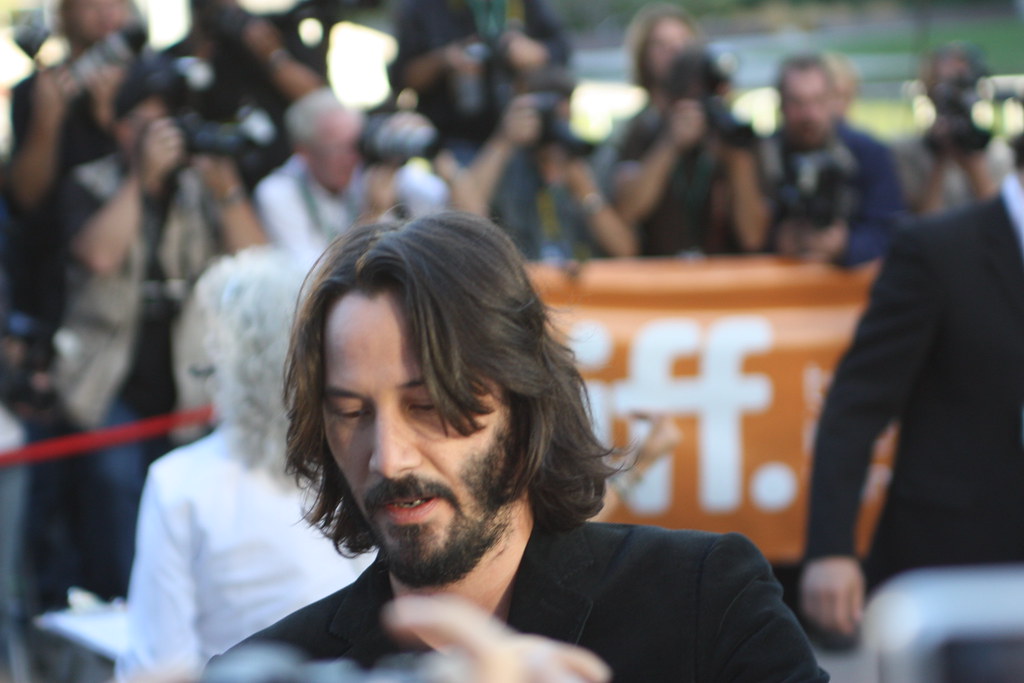
4. **The Unassuming Pursuit of Musical Passions**Long before his resurgence as the iconic John Wick, Keanu Reeves nurtured a deep-seated passion for music, a pursuit that, for an actor of his stature, represented a clear departure from maximizing financial gain. His involvement in the alternative rock band Dogstar for a decade, and his subsequent stint with Becky, highlights a habit of valuing artistic expression and collaborative enjoyment over the vast earning potential of his primary acting career. This reflects an unassuming attitude towards wealth, where personal fulfillment through creative outlets often takes precedence over predictable profits.
Reeves “developed an interest in a music career” in 1991, forming “the alternative rock band Dogstar,” where he played the bass guitar. The band released two albums during their time together: “Our Little Visionary in 1996 and Happy Ending in 2000.” For a highly successful actor, dedicating significant time and energy to an alternative rock band, whose albums often have modest commercial returns compared to blockbuster films, illustrates a clear prioritization of personal fulfillment and creative outlet. This is a habit of engaging in activities not primarily for their monetary rewards, implicitly demonstrating a non-materialistic approach to time and talent.
Following Dogstar’s disbandment “by 2002,” Reeves’ “professional music career had come to an end.” However, his musical inclination persisted, as he “performed in the band Becky for a year, founded by Dogstar band-mate Mailhouse, but quit in 2005, citing a lack of interest in a serious music career.” This continuity, even after stepping away from Dogstar, further underscores his genuine passion for music. His willingness to participate in a band without the explicit goal of a “serious music career” speaks to a grounded, avocational pursuit that is unconcerned with leveraging his celebrity for massive musical profits. This quiet, personal dedication to music exemplifies a more understated use of his time and celebrity.
Read more about: From ’70s Icons to Unexpected Legacies: 12 TV Stars Who Redefined Stardom in Astonishing Ways
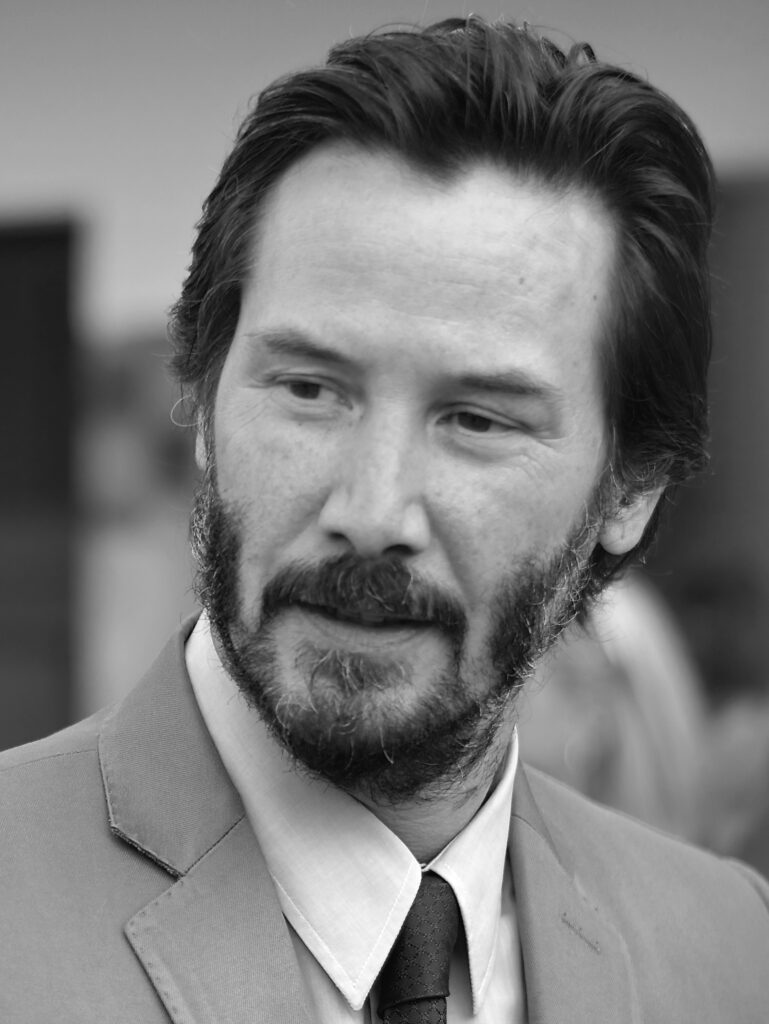
5. **A Dedication to Informative Storytelling: Documentaries and Thought-Provoking Content**Keanu Reeves’ commitment to supporting and participating in informative storytelling through documentaries further accentuates his tendency to allocate his resources towards content that enriches and informs, rather than solely entertains or amplifies his celebrity. This habit of engaging with and producing non-fiction works, spanning diverse and often weighty subjects, reveals a thoughtful engagement with the world and a practical application of his influence and financial capacity for educational purposes. It points to a more cerebral form of investment, quite distinct from conspicuous consumption.
In 2012, Reeves “co-produced and appeared in a documentary, Side by Side.” In this film, “He interviewed filmmakers including James Cameron, Martin Scorsese, and Christopher Nolan; the feature investigated digital and photochemical film creation.” This hands-on involvement, from co-producing to actively interviewing industry titans, shows a deep intellectual curiosity and a desire to explore the intricacies of his own craft. Dedicating resources to a documentary on film technology, rather than purely commercial projects, signals a habit of valuing knowledge and the sharing of insights within his industry, reflecting a grounded use of his influence.
His narration roles in other documentaries further solidify this pattern. In 2015, he narrated “Deep Web, about crime on the dark web, and Mifune: The Last Samurai, about the life of Toshiro Mifune, famous for playing samurai characters.” These choices demonstrate an engagement with complex, often niche, subjects that offer profound learning experiences. Similarly, in 2006, he “co-narrated The Great Warming with Alanis Morissette, a documentary about climate change mitigation.” These contributions to environmental and social awareness further highlight a habit of using his voice and platform for educational and critical discussions, showing a commitment to broader societal issues.
Collectively, Reeves’ involvement in these documentaries showcases a sustained interest in subjects that demand intellectual rigor and offer societal value, which contrasts sharply with a focus purely on personal luxury. By lending his name, time, and resources to projects that delve into the mechanics of film, the complexities of the digital underworld, the legacy of cinematic legends, and the pressing issues of climate change, Reeves demonstrates a habit of investing in understanding and informing. This quiet, intellectual pursuit is a powerful indicator of a grounded approach to his wealth, prioritizing meaningful contributions over personal indulgences, further cementing his image as an unexpectedly modest multimillionaire.
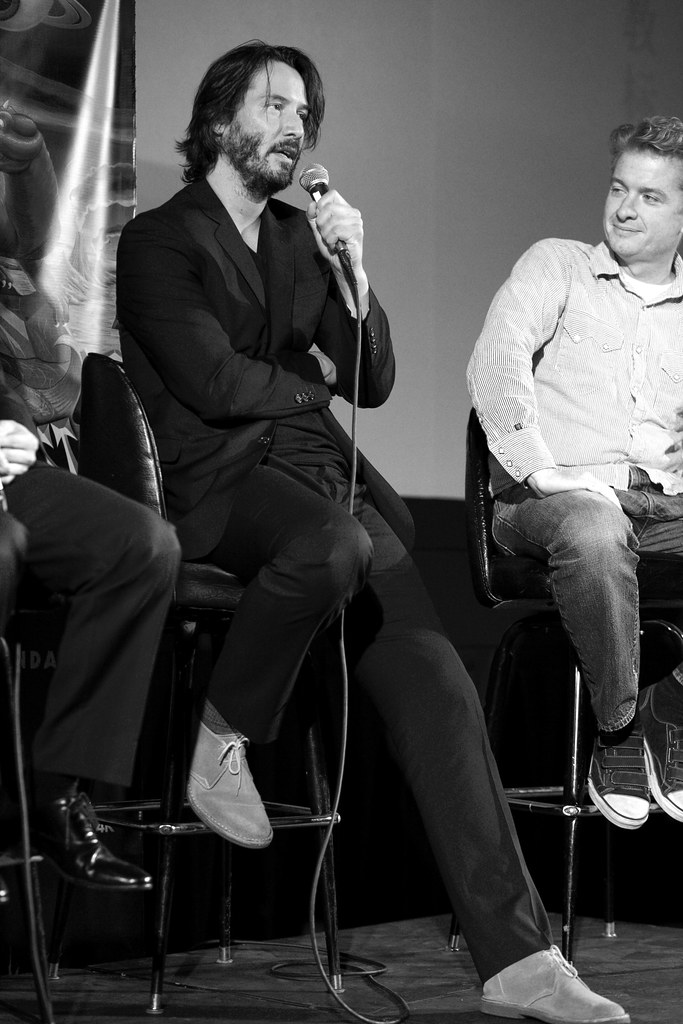
6. **Embracing a Broad Spectrum of Roles, Beyond the Blockbuster Lure**Keanu Reeves’ financial discipline isn’t merely found in pay cuts or passion projects; it’s also evident in his steadfast commitment to exploring a diverse range of roles throughout his career, often prioritizing artistic experience and challenging roles over massive box office returns or critical acclaim. In an industry where actors can often be typecast or stick to commercially safe genres, Reeves has consistently ventured into varied cinematic landscapes. This habit reflects a grounded approach to his craft, where the intrinsic value of the work often outweighs external financial or reputational rewards.
His journey began far from the action hero status, with early stage appearances as Mercutio in ‘Romeo and Juliet’ and roles in Brad Fraser’s ‘Wolfboy,’ demonstrating a commitment to the theater. His early film career also showcased this range, from his feature debut in ‘Youngblood’ playing a goalkeeper, to his “affecting and sympathetic” portrayal of Matt in the independent crime drama ‘River’s Edge,’ and his subsequent involvement in teen-oriented dramas like ‘The Night Before’ and ‘Permanent Record.’ Even when these films received mixed reviews, critics often praised Reeves’ performance, indicating a dedication to the role regardless of the project’s commercial or critical fate.
After achieving widespread recognition with films like ‘Point Break’ and ‘Speed,’ and later with the global phenomenon ‘The Matrix,’ Reeves continued to accept roles that defied simple categorization. He starred in Francis Ford Coppola’s ‘Gothic horror Bram Stoker’s Dracula’ and Shakespearean adaptations such as ‘Much Ado About Nothing,’ despite receiving ridicule for his accent in the former and even a Golden Raspberry nomination for the latter. These choices highlight a willingness to push creative boundaries and engage with challenging material, even when it meant personal criticism, rather than exclusively pursuing roles for maximum earnings or public adulation.
Furthermore, his post-Matrix choices continued this pattern, with roles in smaller romantic dramas like ‘Sweet November’ (which received a generally negative reception) and ‘The Lake House,’ alongside his more action-oriented work. He also lent his voice to animated features such as ‘Toy Story 4’ as Duke Caboom and video game characters like Johnny Silverhand in ‘Cyberpunk 2077,’ showcasing a consistent interest in diverse forms of storytelling. This continuous branching out, even into projects with mixed critical reception, underscores a career driven by artistic curiosity, less conventional financial gain.
Read more about: Scarlett Johansson’s Defining Connection: Unpacking Robert Redford’s Memorable Characterization of Her Early Stardom
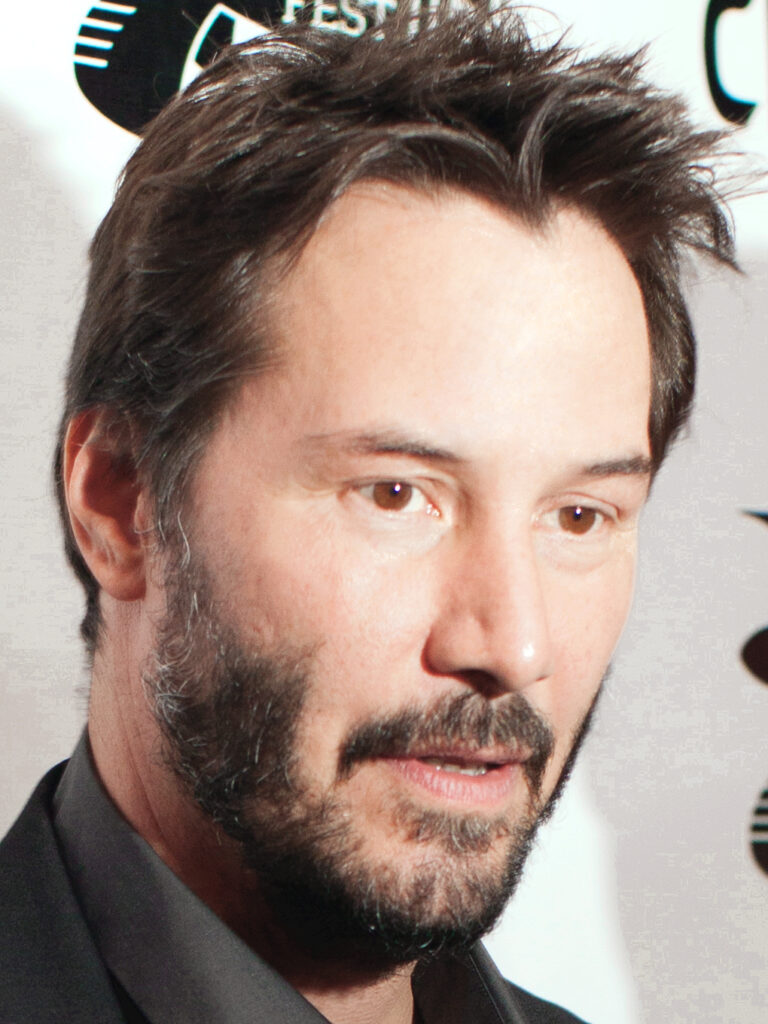
7. **Upholding Unwavering Professionalism, Even Under Duress**Beyond his diverse role choices and charitable inclinations, a less obvious yet profoundly significant aspect of Keanu Reeves’ grounded approach to his career is his unwavering professionalism and integrity. In an industry notorious for its high-stakes contracts and demanding schedules, Reeves has consistently demonstrated a commitment to his obligations and a profound respect for the collaborative process, even when personal cost or discomfort was involved. This habit of upholding his word speaks volumes about his character and a professional ethos beyond mere financial opportunism.
Perhaps the most striking illustration of this integrity is his reluctant involvement in the 2000 thriller ‘The Watcher.’ Reeves publicly stated that “a friend forged his signature on a contract,” and despite the clear breach of trust and the fact that he “could not prove” the forgery, he chose to appear in the film “to avoid legal action.” This decision, which led to him starring in a film “against his wishes” and one that was subsequently “critically panned,” is a powerful testament to his profound sense of responsibility. Rather than engaging in a protracted legal battle, he upheld an unwilling commitment, prioritizing legal and ethical conduct over personal preference or financial gain.
His professionalism also extends to the physical demands of his roles. For ‘Point Break,’ Reeves, who had “never surfed before,” took extensive “surfing lessons with professional surfer Dennis Jarvis in Hawaii” to prepare for the part of an undercover FBI agent. Similarly, for ‘Speed,’ he “shaved all his hair off and spent two months in the gym to gain muscle mass.” The intense martial arts choreography required for ‘The Matrix’ franchise also saw the “principal cast underwent months of intense training with martial arts choreographer Yuen Woo-ping.” These instances highlight a deep-seated commitment to embodying his characters authentically, a dedication beyond simply collecting a paycheck.
Moreover, Reeves has shown remarkable resilience and professionalism in the face of personal tragedy affecting his work. During the production of ‘Speed,’ his “friend and his My Own Private Idaho co-star River Phoenix died, resulting in adjustments to the filming schedule to allow him to mourn.” Despite this profound personal loss, he returned to the set to complete the film. This ability to compartmentalize and deliver on professional commitments amidst significant personal challenges underscores a rare fortitude and grounded approach to his responsibilities, reinforcing his image as a steadfast individual in a volatile industry.

8. **The Enduring Spirit: Navigating Career Highs and Lows with Grace**Keanu Reeves’ journey through Hollywood is not a linear ascent but rather a testament to an enduring spirit, characterized by remarkable resilience in the face of significant career fluctuations and critical scrutiny. His ability to navigate periods of “box-office disappointments” and “limited commercial success,” only to stage powerful comebacks, speaks to a strong internal compass that is not solely swayed by fleeting external validation or immediate financial triumphs. This consistent persistence, when many would retreat to safer, more lucrative endeavors, is a crucial aspect of his grounded financial and professional habits.
Before his iconic turn as Neo, Reeves experienced “several box-office disappointments,” a challenging period for any actor, let alone one seeking to establish himself firmly. Yet, he persevered, leading to his career-defining role in ‘The Matrix’ in 1999. This ability to push through perceived failures and continue seeking meaningful projects demonstrates a profound commitment to his craft and a belief in the long game, rather than being solely driven by the immediate returns or the fickle whims of public opinion. His willingness to keep working, despite less than stellar commercial reception, showcases unique resilience.
Even after ‘The Matrix’ propelled him to superstardom, making him “the highest paid actor for a single production” for its sequels, Reeves still encountered periods where he “enjoyed limited commercial success.” This ebb and flow, which is common in Hollywood, never seemed to deter him from taking on diverse and sometimes critically challenging roles. His subsequent “career comeback by playing the titular assassin in the action film series John Wick (2014–present)” is another powerful illustration of his enduring appeal and his capacity to reinvent himself, always returning to projects that resonate personally, irrespective of past performance.
Furthermore, Reeves has faced his share of critical backlash, from his “overly posh and entirely ridiculous” English accent in ‘Bram Stoker’s Dracula’ to being “woefully miscast” in ‘Johnny Mnemonic’ and receiving Golden Raspberry nominations for films like ‘Much Ado About Nothing’ and ‘The Day the Earth Stood Still.’ Yet, these criticisms have never led him to abandon challenging roles or retreat from diverse genres. Instead, he continued to pursue a wide array of projects, suggesting an intrinsic motivation immune to external critical noise and box office numbers. This quiet fortitude is a hallmark of his unpretentious character.
Read more about: The Unbroken Spirit: Emma Heming Willis’ Candid Story of Caregiving and Hope Amid Bruce Willis’ FTD Battle
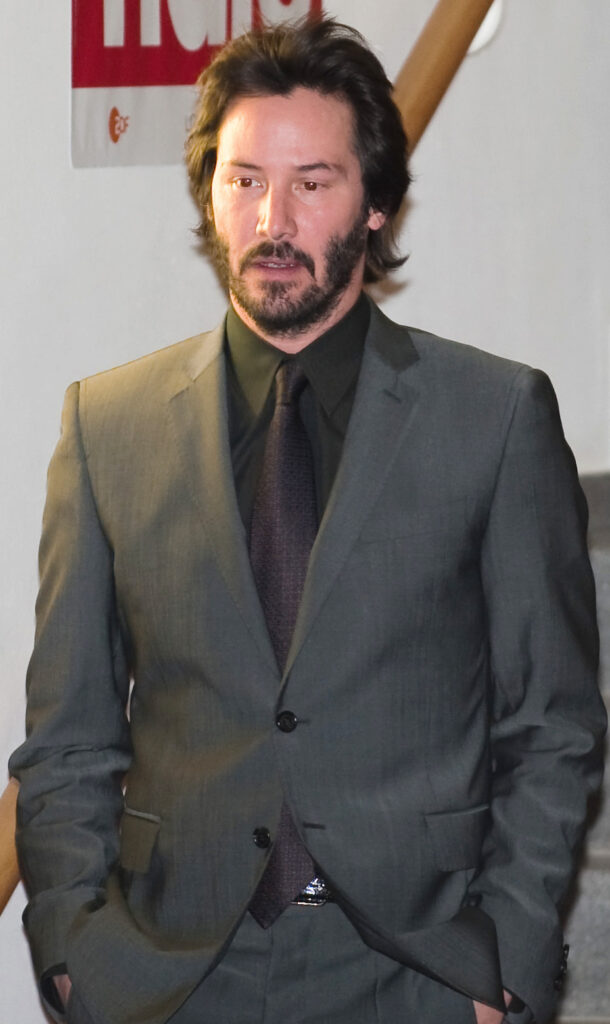
9. **A Grounded Approach to Creativity: From Directing to Production**Keanu Reeves’ engagement with the film industry extends far beyond his work as an actor, revealing a deeper, more grounded commitment to the art of storytelling and creation. His willingness to step into roles as a director, producer, and even co-founder of production companies underscores a habit of investing his time and resources into the very fabric of filmmaking itself, rather than merely being a highly paid performer. This active involvement illustrates a holistic approach, prioritizing story development, which requires a different kind of financial and creative investment.
His directorial debut with the 2013 martial arts film ‘Man of Tai Chi’ is a prime example of this dedication. Partially inspired by the life of his friend Tiger Chen, the film was a passion project that required him to oversee principal photography in China and Hong Kong, and collaborate with ‘The Matrix’ fight choreographer Yuen Woo-ping. This venture, described as “ambitious but generic” by some and praised for its “brutally efficient shooting style” by others, was a significant personal and professional undertaking. Despite being a “commercial disappointment, grossing only $5.5 million worldwide from a budget of $25 million,” the fact that he pursued this vision speaks volumes about his priorities, valuing the creative endeavor over financial returns.
Furthermore, Reeves’ co-founding of “the production company Company Films” highlights his commitment to shaping projects from their inception. This entrepreneurial step allows him to be intimately involved in the development and realization of cinematic ventures, providing a platform to bring diverse stories to the screen. Such involvement showcases a habit of using his influence and resources to facilitate creative processes, rather than focusing solely on increasing his personal acting fee. It signifies a long-term investment in the industry’s creative output.
His role as a “co-producer” for the 2012 documentary ‘Side by Side,’ in which he also appeared and interviewed prominent filmmakers like James Cameron and Martin Scorsese, further exemplifies this grounded, hands-on approach. The documentary investigated “digital and photochemical film creation,” demonstrating his intellectual curiosity about the very mechanics of his craft. This dedication to understanding and contributing to filmmaking’s evolution reveals a genuine, unpretentious engagement with his profession, distinguishing him as an artist who values the entire creative ecosystem.
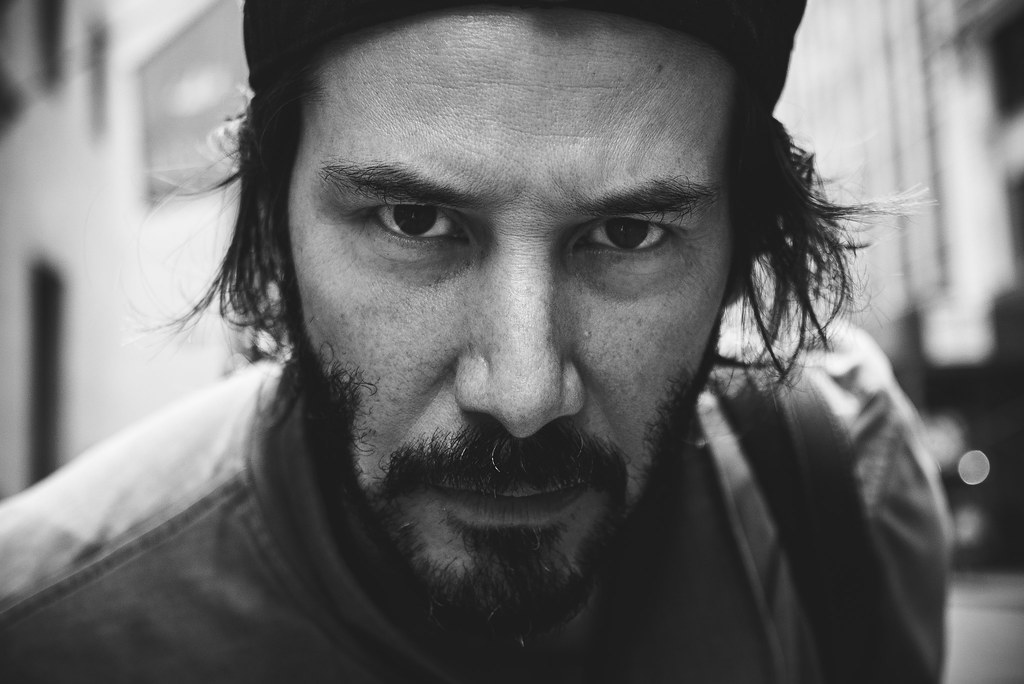
10. **Shaping a Modest Outlook: Lessons from an Unconventional Upbringing**To fully appreciate Keanu Reeves’ unexpectedly grounded approach to wealth and life, one must consider the profound influence of his early life experiences. Far from a privileged or stable upbringing often associated with future stars, Reeves’ formative years were marked by instability, challenges, and cultural diversity. These experiences arguably instilled in him a resilient, adaptable, and less materialistic outlook, fostering a focus on inner values and human connection rather than the external trappings of success. His “frugal habits,” broadly defined, are thus deeply rooted in youth.
Born in Beirut in 1964 to an English costume designer mother and an American father of Native Hawaiian, Chinese, English, and Portuguese descent, Reeves’ early family life was fractured. His “father abandoned his wife and family when Reeves was three years old,” and he “last met his father on the Hawaiian island of Kaua’i when he was thirteen.” His mother frequently moved the family—to Sydney, then New York City, then Toronto—and married multiple times, with Reeves and his sisters often being cared for by a nanny. This early exposure to constant change and parental absence likely cultivated self-reliance and an understanding that stability is not a given, subtly shaping a modest and adaptable character.
His academic journey was equally unconventional. Describing himself as a “private kid,” Reeves “attended four different high schools, including the Etobicoke School of the Arts, from which he was expelled” for being “just a little too rambunctious.” He also openly stated, “Because I had trouble reading, I wasn’t a good student” due to his dyslexia. Furthermore, his aspiration to play for the Canadian Olympic ice hockey team was “ended due to injury.” These early setbacks and challenges, from academic difficulties to losing a sporting dream, likely contributed to a resilient spirit and a focus on intrinsic motivation rather than external achievements.
Culturally, his upbringing was rich and varied. His mother “imparted English manners that he has maintained into adulthood,” and because of his “grandmother’s Chinese ethnicity, Reeves grew up with Chinese art, furniture, and cuisine.” These diverse cultural influences, combined with an early exposure to British comedy shows, fostered a broad perspective. This rich, yet often unstable, background likely grounded him, making him less susceptible to Hollywood excess and more appreciative of genuine experiences and personal connections. His early life, therefore, laid the foundation for the unexpectedly unpretentious multimillionaire we see today.
In a world where celebrity often equates to ostentation, Keanu Reeves stands as a refreshing anomaly. His unexpected “frugal habits” are not about living cheaply, but about living richly in values: integrity, passion, resilience, and a profound connection to both his craft and humanity. His career and life choices, from taking pay cuts for art to quietly pursuing personal creative ventures and navigating significant challenges with grace, collectively paint a picture of a man whose vast wealth is merely a tool, rather than a master. Reeves demonstrates that true richness lies not in what one accumulates, but in what one contributes, creates, and the genuine manner in which one lives.

